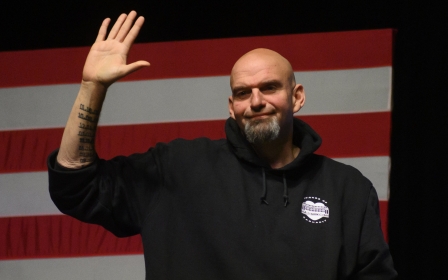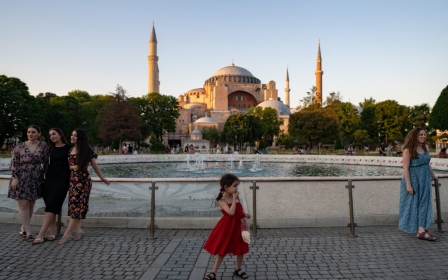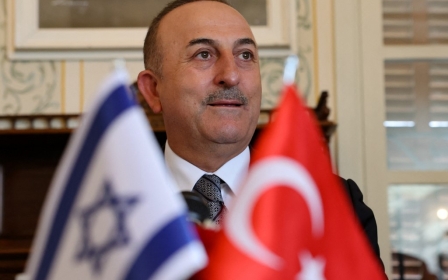Turkey: Istanbul mayor Imamoglu threatened with political ban and prison
Prosecutors in Turkey are seeking a political ban and as much as four years in jail for Istanbul mayor Ekrem Imamoglu on charges of "insulting" public officials.
A court hearing scheduled for Friday was delayed on the day until 14 December. Prosecutors have repeatedly requested Imamoglu be imprisoned, asking for between 15 months and just under four years.
Imamoglu, a member of the main opposition Republican People's Party (CHP), has repeatedly stated that the charges against him are designed to keep him out of the running for the 2023 presidential election. Some see him as a possible rival to President Recep Tayyip Erdogan.
On Friday, as he was leaving prayers, Imamoglu condemned the charges.
"These types of legal procedures push people to despair, especially the younger generations," he said.
New MEE newsletter: Jerusalem Dispatch
Sign up to get the latest insights and analysis on Israel-Palestine, alongside Turkey Unpacked and other MEE newsletters
The prosecution stems from comments made by Imamoglu in 2019, following mayoral elections on 31 March. These were overturned by election officials after claims were made about voting irregularities by the losing Justice and Development Party (AKP).
New elections were called which saw a groundswell of support for Imamoglu, with many of those who had not voted for him previously switching over.
"Those who cancelled the 31 March election are idiots," he told reporters at the time.
Imamoglu's lawyer Kemal Polat has denounced the charges as a "political affair".
Political change?
Polling has repeatedly shown a number of CHP leaders pulling ahead of Erdogan, raising the possibility that elections next year could see the end of his two decades of rule.
Both Imamoglu and Mansur Yavas, mayor of the capital, Ankara, enjoy widespread support and have been seen as possible candidates for the presidency.
Last week, CHP leader Kemal Kilicdaroglu - who is less popular than either mayor but has nevertheless suggested he could run for president - said he had been charged under a new disinformation law with "spreading misleading information".
The charges come from accusations that authorities were overseeing an "an epidemic of methamphetamines" in Turkey and carving off money from drug sales to help pay off national debt.
Many opposition figures have struggled in Turkey, particularly since a failed 2016 coup attempt which Erdogan blamed on his former ally, US-based cleric Fethullah Gulen.
More than 300,000 people have been arrested in Turkey over suspected ties to Gulen since the coup attempt, while many politicians without links to Gulen - particularly members of the pro-Kurdish Peoples Democracy Party (HDP) - have also been imprisoned.
The country has also been gripped by a financial crisis for many years now, with many observers blaming Erdogan's unorthodox monetary policy, which relies on low interest rates and high inflation.
Turkish annual inflation climbed to a new 24-year high of 85.51 percent in October.
The lira's 44 percent decline last year and 29 percent this year was the main reason behind soaring inflation, in addition to surging energy prices.
Middle East Eye delivers independent and unrivalled coverage and analysis of the Middle East, North Africa and beyond. To learn more about republishing this content and the associated fees, please fill out this form. More about MEE can be found here.





